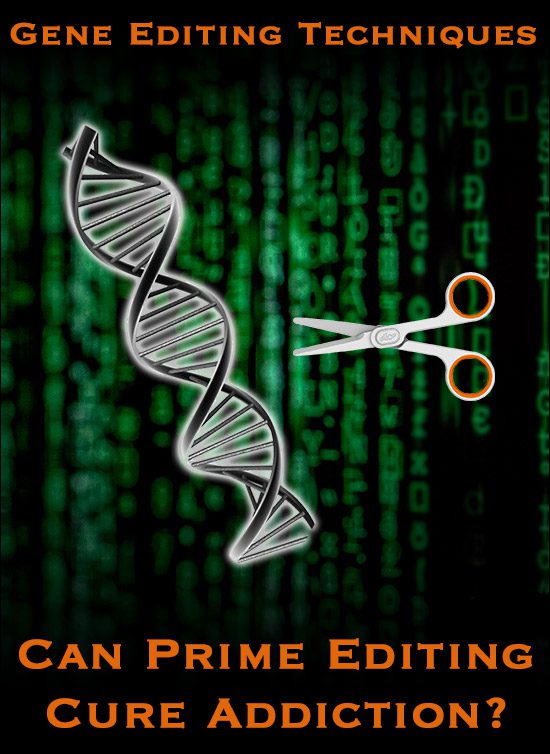“Prime Editing” is a groundbreaking new gene-editing technique with the potential, researchers believe, to correct possibly 90 percent of genetic defects that lead to disease.
Combined with other studies, such as genetic testing for opioid addiction, there might be a future where chronic diseases like Alzheimer’s, diabetes and addiction can be cured instead of just treated and managed.

A relatively new field of medicine, the latest advances in gene editing come from researchers at the Broad Institute of MIT and Harvard.
Prime-editing allows scientists to identify, target and write new genetic information all without breaking or cutting DNA strands like earlier technologies.
The findings, published in October 2019 in the journal Nature, show that scientists were able to edit more than 175 human cells in the laboratory and even repair genetic mutations that cause sickle cell and Tay-Sachs disease.
“The versatility of prime editing quickly became apparent as we developed this technology,” Andrew Anzalone, one of the study’s authors said. “The fact that we could directly copy new genetic information into a target site was a revelation. We were really excited.”
Previous methods of genetic editing were done using techniques such as “base editing” or “CRISPR-Cas9,” with “prime editing” being a new variant. While they all share similarities, each has its own advantages, disadvantages and outcomes.
Addiction and Genetics
A staggering number of Americans, around 20 million, battle the disease of addiction and less than a third of people struggling with the often debilitating symptoms will ever receive treatment, according to the Substance Abuse and Mental Health Services Administration (SAMHSA).
Despite the many challenges, science has come a long way in identifying some of the factors that lead to the disease.
In Drugs, Brains, and Behavior: The Science of Addiction, the National Institute on Drug Abuse (NIDA) reports some of the following about the causes of addiction:
- A person’s risk of developing an addiction is about 40 to 60 percent genetic
- Environmental factors are also crucial. Those who grew up in homes with parents that abused drugs or alcohol and suffered physical or sexual abuse are at a greater risk
- Teenagers and young people who use drugs or alcohol are also more likely to develop substance abuse issues later in life
- People struggling with untreated mental health conditions often self-medicate to treat their symptoms and this can also lead to addiction
Will Gene Editing Work to Correct Addiction?
Whether scientists will be able to use gene editing as a way to lessen a person’s chance of developing an addiction is, as of now, unknown. There are challenges ahead.
“Despite advances in the science of genetics, it has been extremely difficult to identify the possible genetic contributions to addiction because it likely involves a combination of inherited variants in multiple genes,” according to NIH’s Science Spotlight.
In other words, it’s not as simple as identifying a single addiction-related gene and repairing the mutation. There are any number of inherited genes that may increase a person’s risk of addiction.
Still, advances in genetic therapies are going in the right direction and, as Harvard Biologist David Liu believes, definitely hold promise.
“Prime editing is really a step – and potentially a significant step – toward this long-term aspiration of the field in which we are trying to be able to make just about any kind of DNA changes that anyone wants at just about any site in the human genome,” Liu tells NPR News.
At this time, scientists, geneticists, and healthcare professionals are just scratching the surface with many of these new medical technologies. But as history has shown us, breakthroughs happen all the time.
The hope is that someday, we may be able to actually “cure” diseases like addiction, where today we can only “treat and manage” them. If they prove to be successful, gene editing techniques like prime editing and others will be game-changing technologies in the field of medicine and healthcare.
Related:
How are Diseases Classified? Read the DSM-5 and ICD-11
What is the DSM-5 and How Does it Relate to Substance Abuse?
Ten of the Biggest Addiction Myths





